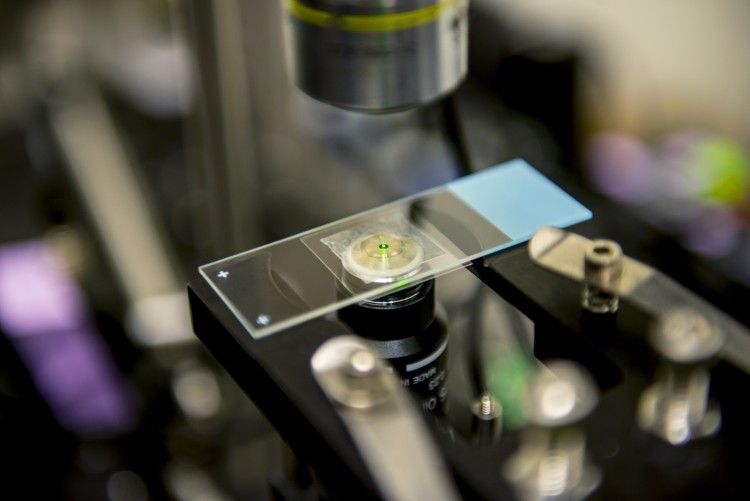Medical workers have been looking for signs of illness before clearing flights for takeoff.



A new type of killer T-cell could serve as “one-size-fits-all” cancer therapy.
Researchers at Cardiff University in Wales discovered a different kind of T-cell receptor (TCR)—one that recognizes and kills most human cancer cells while ignoring healthy ones.
The early-stage findings, published this week in the journal Nature Immunology, have not yet been tested in patients. But the team said they have “enormous potential.”

Circa 2017(article) essentially higgs mode could help be a developer mode for creating life or universes really anything creating unparalleled technology even invulnerable metals or nearly impossible properties.
In this book, Merali explores the possibilities of creating an infant universe in a laboratory. Read on.
Essentially neutrino lasers could take out missiles and also hack missiles or nukes rendering them inert in defense practices.
Sponsored Content
Scientists at the Fermi National Accelerator Laboratory (Fermilab) are working on research projects that aim to answer fundamental physics questions. How did the universe begin? What are dark matter and dark energy? What is the mass hierarchy of neutrinos? Are there other undiscovered particles beyond the currently known Standard Model of Particle Physics?

Circa 2015
Since the first laser was invented in 1960, they’ve almost always given off heat — either as a useful tool, a byproduct or a fictional way to vanquish intergalactic enemies.
But those concentrated beams of light have never been able to cool liquids. University of Washington researchers are the first to solve a decades-old puzzle — figuring out how to make a laser refrigerate water and other liquids under real-world conditions.

Am Nat. 2017 Nov;190:694–706. doi: 10.1086÷693854. Epub 2017 Sep 5.
Biological invasions offer interesting situations for observing how novel interactions between closely related, formerly allopatric species may trigger phenotypic evolution in situ. Assuming that successful invaders are usually filtered to be competitively dominant, invasive and native species may follow different trajectories. Natives may evolve traits that minimize the negative impact of competition, while trait shifts in invasives should mostly reflect expansion dynamics, through selection for colonization ability and transiently enhanced mutation load at the colonization front. These ideas were tested through a large-scale common-garden experiment measuring life-history traits in two closely related snail species, one invasive and one native, co-occurring in a network of freshwater ponds in Guadeloupe. We looked for evidence of recent evolution by comparing uninvaded or recently invaded sites with long-invaded ones.



Circa 2012
Imagine a clock that will keep perfect time forever or a device that opens new dimensions into quantum phenomena such as emergence and entanglement.
Imagine a clock that will keep perfect time forever, even after the heat-death of the universe. This is the “wow” factor behind a device known as a “space-time crystal,” a four-dimensional crystal that has periodic structure in time as well as space. However, there are also practical and important scientific reasons for constructing a space-time crystal. With such a 4D crystal, scientists would have a new and more effective means by which to study how complex physical properties and behaviors emerge from the collective interactions of large numbers of individual particles, the so-called many-body problem of physics. A space-time crystal could also be used to study phenomena in the quantum world, such as entanglement, in which an action on one particle impacts another particle even if the two particles are separated by vast distances.
A space-time crystal, however, has only existed as a concept in the minds of theoretical scientists with no serious idea as to how to actually build one – until now. An international team of scientists led by researchers with the U.S. Department of Energy (DOE)’s Lawrence Berkeley National Laboratory (Berkeley Lab) has proposed the experimental design of a space-time crystal based on an electric-field ion trap and the Coulomb repulsion of particles that carry the same electrical charge.